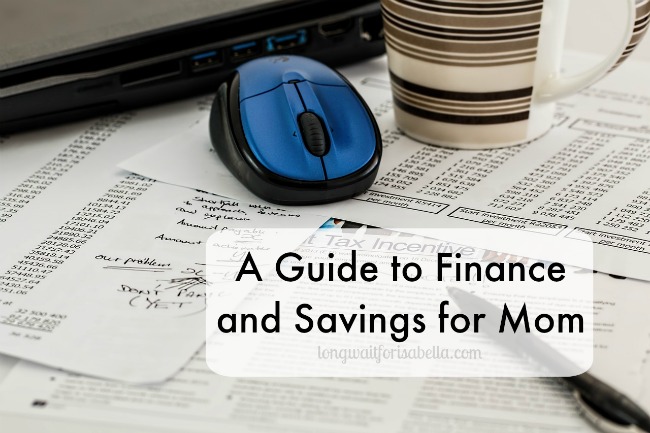The mortgage bill, utilities, karate lessons, dance classes, school supplies, grocery lists, and more… How do you do it? Let’s face it: most moms are living paycheck to paycheck, and after daycare and other expenses, it’s really difficult to put a little extra away. Saving for a rainy day isn’t the easiest thing with so many bills to pay. The responsibilities, the necessities and the desires to have more can be overwhelming, but nothing is more important than an emergency savings fund. Here are some tips to help you stay on top of your finances in order to build a savings and take control.
[Tweet “Nothing is more important than an emergency savings fund. #finance”]
A Guide to Finance and Savings for Mom

Smart Planning Makes All the Difference
Smart planning is easily the best way to get ahead. For example, you should pay yourself first. It’s an old bit of financial wisdom, but it’s a goodie. Before paying bills or anything else, put a little bit of money into your savings. Do this every week, and you’ve got the beginnings of an emergency fund, which will come in handy later on.
Planning when it comes to financing and loans is essential to handling debts with maturity as well. For example, if you want to take more family vacations you would consider owning an RV or other recreational vehicle, in which case you would need a loan. Do your research in terms of rates and offers, and look for the absolute best deal. Some financing companies are able to provide better rates than others.
Budget and Keep Notes
Even if you’re not using checks, regularly balancing your checking account is going to help you stay on top of what’s coming in and going out of your bank account. Save receipts and keep a notepad and pen handy to quickly jot things down. Then, once home add this spending to your monthly budget and into a check registrar or balance sheet.
At the end of every month, take a look at your spending habits and make changes if need be. Know the difference between a need and a want. For example, you need healthy groceries every week, but you want new clothes and makeup. If you’re overspending in one area of your life, cut back and put that savings towards something that matters, such as taking a family vacation.
Keep Cash On Hand
If you have a habit of overspending what’s in your bank account, use cash to reel in this frivolous spending. Set aside cash for the little things, such as bathroom supplies and new clothes. This money is basically your allowance, and it stops you from impulse swiping (being at the register, overspending, and then swiping your bank card or credit card anyway). You’ll know how much you have on hand, and you can force yourself to use cash only and avoid debt.
Buyer Beware
Before making a big purchase, give yourself two weeks to think it over. Training yourself to avoid impulse buys is one of the best things you can do. Also, beware of where you’re shopping. Discount grocery stores, such as Save-a-Lot and Aldi’s, are less expensive than name brand stores, such as Target.
There are many small changes you can make that will make a huge difference in your bank accounts later on. Use the money you save to build up a savings, so you never find yourself in a pickle (car breaks down, etc.). Remember: when it comes to savings, the number one rule is not to spend.



I need to put these tips into practice. I am horrible with money. I am very much an impulse buyer. Thanks for the tips!!
http://www.writingmotherfashionista.com